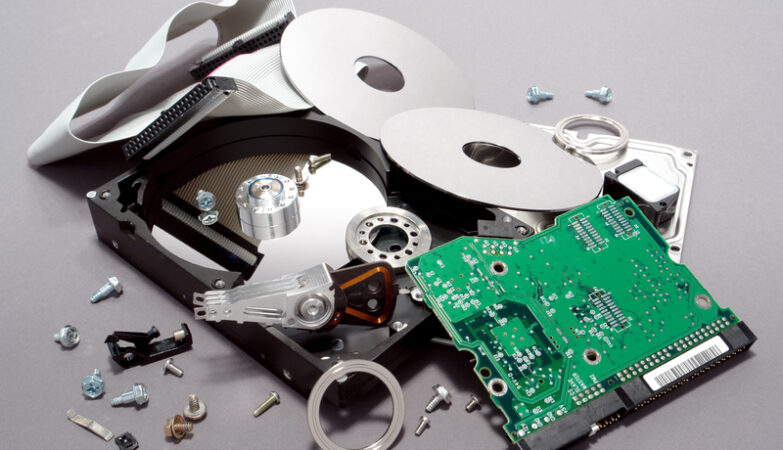Unlock the power of fuel fleet cards to streamline fuel management, slash costs, and enhance efficiency for any business. This blog reveals practical tips and real-world success stories to optimise your fleet’s performance. Dive in and transform your fuel strategy today!
Imagine a world where managing your fleet’s fuel expenses is as easy as a single swipe. No more chasing receipts, juggling multiple credit cards, or worrying about unauthorised purchases. With fuel fleet cards, businesses can transform chaotic fuel management into a seamless, cost-effective process. Whether you run a small delivery service or a nationwide trucking operation, fuel costs are likely one of your most significant expenses. This blog dives into how fuel fleet cards simplify fuel management, save money, and boost operational efficiency, offering practical insights for fleet managers and business owners alike.
Why Fuel Management Matters for Businesses
Fuel is often the second-largest expense for fleets, trailing only behind salaries. For a single truck, annual fuel costs can range from £30,000 to £50,000, and for larger fleets, these numbers multiply quickly. Inefficient fuel management can erode profits, complicate accounting, and even lead to fraud. Traditional methods—relying on cash, personal credit cards, or manual expense tracking—are time-consuming and prone to errors. Fuel fleet cards address these pain points by offering a tailored solution that brings control, visibility, and savings to the forefront.
What Are Fuel Fleet Cards?
Fuel fleet cards are specialised payment cards designed for businesses to manage fuel and vehicle-related expenses. Unlike standard credit cards, these cards are built for fleet needs, offering features like detailed transaction tracking, spending controls, and fuel discounts. They can be assigned to specific drivers or vehicles, ensuring every purchase is tied to a purpose. Accepted at a vast network of fuel stations and truck stops, fuel fleet cards streamline payments while providing real-time insights into spending patterns.
Key Features of Fuel Fleet Cards
- Transaction Tracking: Every purchase is logged with details like date, time, location, and amount, reducing manual record-keeping.
- Spending Controls: Set limits per transaction, day, or week to prevent overspending or misuse.
- Fuel Discounts: Many cards offer rebates or discounts, saving up to £1.20 per litre on diesel at select stations.
- Fraud Protection: PIN verification and real-time alerts help detect and prevent unauthorised transactions.
- Integration: Sync with fleet management software for seamless data flow and simplified reporting, including IFTA compliance.
How Fuel Fleet Cards Streamline Operations
1. Simplified Expense Tracking
Manually collecting receipts and reconciling expenses is a headache for fleet managers. Fuel fleet cards automate this process by logging every transaction in real time. For example, a UK-based transport company saved over £50,000 in eight months by using fuel cards with detailed reports that eliminated manual data entry. With cards like AI EazyFuel, fleet managers can access a dashboard to monitor spending by driver, vehicle, or location, making budgeting and auditing a breeze.
2. Enhanced Cost Control
Fuel fleet cards allow businesses to set specific spending limits and restrict purchases to fuel or maintenance only. For instance, a delivery company can cap daily fuel spending at £80 per driver, ensuring costs stay within budget. Real-time alerts notify managers of suspicious activity, like purchases outside operational hours. This level of control minimises fuel theft and unauthorised spending, which can save small businesses thousands of pounds annually.
3. Boosted Fuel Efficiency
By analysing fuel consumption data, businesses can identify inefficiencies, such as excessive idling or suboptimal routes. For example, a UK beverage company used fuel cards with mileage tracking to reduce business mileage by 12% in six months, cutting both costs and carbon emissions. Integrating fuel fleet cards with telematics systems provides insights into driver behaviour, helping companies optimise routes and train drivers for better fuel efficiency.
4. Streamlined Compliance and Reporting
For trucking companies, compliance with regulations like the International Fuel Tax Agreement (IFTA) is a must. Fuel fleet cards simplify reporting by automatically capturing fuel purchase data, including location and volume. This reduces the time spent on quarterly reports and minimises errors. Businesses can also leverage cards for VAT reclaims, as seen with a UK security firm, which saved time on expense tracking and reinvested savings into staff training.
Real-Life Success Stories
- High Tech Transport: By switching to fuel cards, this company saved over £50,000 in eight months through discounts and streamlined expense tracking. The ability to set spending limits prevented misuse, while detailed reports simplified accounting.
- UK Beverage Company: Fuel cards helped reduce fuel consumption by 12% within six months, thanks to mileage tracking and spending controls. The savings funded eco-friendly initiatives and driver training programs.
- Sweatman Trucking: This fleet achieved 35p per litre savings on average, using fuel cards to access discounts and monitor fuel usage, resulting in a 10% reduction in operational costs.
Actionable Tips for Maximising Fuel Fleet Card Benefits
- Choose the Right Card: Select a card with a vast network, like AI EazyFuel, accepted at 95% of UK fuel stations. Ensure it offers robust reporting and integration with your fleet management software.
- Set Clear Policies: Define spending limits and approved purchase types (e.g., fuel only) to prevent misuse. Communicate these guidelines to drivers.
- Monitor Transactions Regularly: Use real-time alerts to catch anomalies early. Review reports weekly to spot trends or inefficiencies.
- Integrate with Telematics: Combine fuel card data with GPS tracking to optimise routes and improve driver behaviour, reducing fuel waste.
- Leverage Discounts: Prioritise stations offering rebates or loyalty rewards to maximise savings. Check for additional perks like maintenance discounts.
Overcoming Common Misconceptions
Some small business owners believe fuel fleet cards are only for large fleets or offer minimal savings. In reality, cards like AI EazyFuel benefit fleets of all sizes by simplifying expense tracking and providing discounts that add up over time. Another myth is that fuel cards complicate management, but their automated reporting and integration features reduce administrative burdens, freeing up time for core business activities.
Why Choose AI EazyFuel?
AI EazyFuel stands out for its user-friendly platform and comprehensive features. Accepted at over 95% of UK fuel stations, it offers competitive discounts, real-time transaction tracking, and seamless integration with fleet management systems. Its robust fraud protection and customizable spending controls ensure peace of mind, while detailed reports simplify compliance and budgeting. Whether you manage a handful of vans or a large trucking fleet, AI EazyFuel empowers you to save time, cut costs, and drive efficiency.
Conclusion
Fuel fleet cards are more than just payment tools—they’re game-changers for businesses looking to streamline fuel management. By automating expense tracking, enhancing cost control, and boosting efficiency, cards like fuel fleet cards help companies to save money and focus on growth. From small delivery services to large trucking operations, the benefits are clear: reduced costs, simplified compliance, and improved visibility. Ready to take control of your fleet’s fuel expenses? Explore AI EazyFuel today and see how easy fuel management can be.











